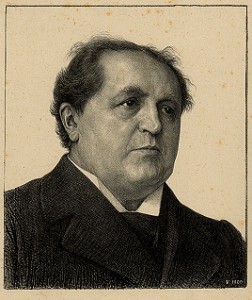


The Acton Institute and Kuyper College are partnering to produce a first-ever English translation of Abraham Kuyper’s seminal work Common Grace (De gemeene gratie). The three-volume project will be published through Acton’s recently acquired imprint, Christian’s Library Press, and the first volume is slated to appear in the fall of 2012.
More details are appear below and at the Kuyper translation project page. You can sign up at the page to be kept up-to-date as the project progresses. There you can also download and share a brochure about the project (PDF), the table of contents for the three volumes (PDF), as well as a translation of Kuyper’s introduction to the first volume (PDF). These brochures were distributed to attendees of last week’s conference hosted by the Abraham Kuyper Center for Public Theology at Princeton Theological Seminary, “Calvinism and Culture.”
Summary
There is a trend among evangelicals to engage in social reform without first developing a coherent social philosophy to guide the agenda. To bridge this gap, Acton Institute and Kuyper College are partnering together to translate Abraham Kuyper’s seminal three-volume work mon grace (De gemeene gratie). Common Grace was chosen because it holds great potential to build intellectual capacity within evangelicalism and because a sound grasp of this doctrine is what is missing in evangelical cultural engagement. Common Grace is the capstone of Kuyper’s constructive public theology and the best available platform to draw evangelics back to first principles and to orient their social thought.
Press Release
GRAND RAPIDS, Mich. (April 19, 2011)—The Acton Institute and Kuyper College are collaborating to bring for the first time to English-language audiences a foundational text from the pen of the Dutch theologian and statesman, Abraham Kuyper. Kuyper’s three-volume work, Common Grace (De gemeene gratie) appeared from 1901-05, during his tenure as prime minister in the Netherlands.
These works are based on a series of newspaper editorials intended to mon citizens and laypersons with the tools they needed to effectively enter public life. The doctrine mon grace is, as Kuyper puts it, “the root conviction for all Reformed people.”
“If the believer’s God is at work in this world,” says Kuyper, “then in this world the believer’s hand must take hold of the plow, and the name of the Lord must be glorified in that activity as well.”
Dr. Stephen Grabill, director of programs at the Acton Institute, serves as general editor of the project. He points to the contemporary need to understand prehensive and cohesive vision for Christian social engagement. “There are a host of current attempts to try to describe how evangelicals should be at work in the world,” Grabill said. “Kuyper’s articulation of the project mon grace shows how these efforts must be grounded in and flow naturally from sound doctrine.”
Placing social engagement, particularly within the context of business activity, in the broader context of sound theology is a large part of what led Kuyper College to partner in this translation project. “Abraham Kuyper’s project in Common Grace helps provide a reliable and engaging theological basis for our new business leadership program,” said Kuyper College president Nicholas Kroeze.
John Bolt, professor of systematic theology at Calvin Theological Seminary and author of A Free Church, a Holy Nation: Abraham Kuyper’s American Public Theology, will serve as a theological advisor to the project. He describes the basic intention of Kuyper’s work as intended “to challenge the pious, orthodox, Reformed people of the Netherlands to take seriously their calling in Dutch culture and society. His basic argument was: God is not absent from the non-church areas of mon life but bestows his gifts and favor indiscriminately to all people.”
The translation and publication project will cover a two year period, and the three volumes total over 1,700 pages in the original. Dr. Nelson Kloosterman of Worldview Resources International and translator of numerous Dutch works will oversee the translation of the texts. pleted translation will be published by Christian’s Library Press, the recently acquired imprint of the Acton Institute. Volume one of Common Grace is scheduled to appear in the fall of 2012.
For more information please visit:









